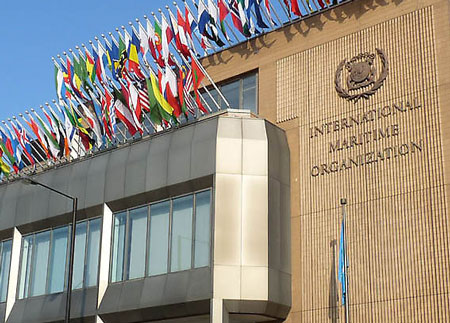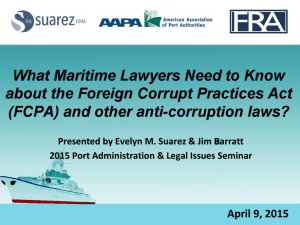 As we welcome the New Year, it is time for the African continent to take stock of developments in international trade policy that occurred in 2015. The year ended with the 10th Ministerial Conference of the World Trade Organization (WTO), which took place in Nairobi, Kenya from 15 to 19 December 2015, a first such meeting to be hosted by an African nation. The Conference was opened by Kenya’s President, Uhuru Kenyatta and hosted by Kenya’s Cabinet Secretary for Foreign Affairs and International Trade Amina Mohamed. They were joined at the Opening Ceremony by President Ellen Johnson Sirleaf of Liberia, whose country concluded its WTO membership negotiations on 16 December 2015. It is interesting to note that the round of trade negotiations being discussed in Nairobi, the Doha Development Agenda (Doha), was launched in Marakesh, Morroco in 2001.
As we welcome the New Year, it is time for the African continent to take stock of developments in international trade policy that occurred in 2015. The year ended with the 10th Ministerial Conference of the World Trade Organization (WTO), which took place in Nairobi, Kenya from 15 to 19 December 2015, a first such meeting to be hosted by an African nation. The Conference was opened by Kenya’s President, Uhuru Kenyatta and hosted by Kenya’s Cabinet Secretary for Foreign Affairs and International Trade Amina Mohamed. They were joined at the Opening Ceremony by President Ellen Johnson Sirleaf of Liberia, whose country concluded its WTO membership negotiations on 16 December 2015. It is interesting to note that the round of trade negotiations being discussed in Nairobi, the Doha Development Agenda (Doha), was launched in Marakesh, Morroco in 2001.
Practice Areas
Shippers Take Heed: IMO Will Require Verification of Packed Container Weights
Measure Becomes Effective July 1, 2016

The International Maritime Organization (IMO) has adopted an important new requirement affecting shippers. The IMO amended the Safety of Life at Sea Convention (SOLAS) to require shippers to verify weights of packed containers, regardless of who packed the container.
Does Trade Facilitation Matter in the Fight against Corruption?
This post originally appeared on Richard Bistrong’s blog on August 3, 2015. View the original article here.
The World Trade Organization’s (WTO) Trade Facilitation Agreement (TFA) may seem to be an odd topic for an anti-corruption blog but it is not. It has everything to do with good governance and addressing the demand side of corruption at the border. But in order to understand the relationship one must understand what Trade Facilitation is and how exactly it addresses public corruption at Customs.
The WTO defines trade facilitation as “the simplification and harmonisation of international trade procedures” covering the “activities, practices and formalities involved in collecting, presenting, communicating and processing data required for the movement of goods in international trade.” The main features of the TFA include: required publication of regulations and fees; appeal-and-comment rights when new regulations are introduced; mandatory internet availability of documents and payment options; simple and clear access to overseas documents and regulations; special procedures for expedited release of air cargo and perishable goods; transit guarantees for cargoes from land-locked countries through neighboring countries to seaports without special fees; support for the use of express delivery and air cargo; requirements for clear procedures to deal with cargo holdups and releases; and technical assistance and capacity building for low-income countries to put these reforms into place. In short, TFA provides a blueprint for customs modernization. Successful implementation will lie in the detailed work that lies ahead.
The TFA was finalized at the conclusion of the 9th Ministerial Conference in Bali, Indonesia, on December 7, 2013 (see here). It was the first WTO trade agreement concluded since 1998 and the first fully multilateral trade agreement negotiated under the auspices of the WTO. Unfortunately, India held up final approval of the TFA by linkage to an entirely separate issue addressing food stockholding programs. Thanks to the leadership of Director-General Roberto Azevedo and persistent efforts of the U.S. Trade Representative Ambassador Michael Froman, on November 27, 2014 the WTO adopted decisions related to public stockholding for food security purposes, the TFA and the post-Bali work, which put TFA back on track for ratification and implementation.
In spite of the touted benefits, the WTO member countries has been slow to ratify the TFA. As of June 18, 2015, only eight countries had ratified. They include: the United States, Singapore, Hong Kong, Mauritius, Malaysia, Japan, Australia and Botswana. On July 14, 2015, the European Parliament’s INTA Committee approved TFA. Each European Union member state will be counted individually. Nonetheless, two-thirds of the WTO membership, or 108 members, must ratify TFA before it is implemented. Meanwhile, the U.S. and the WTO are encouraging countries to take action before the Tenth WTO Ministerial December 15-18, 2015 in Nairobi Kenya.
Deputy U.S. Trade Representative Bruce Hirsh also called on U.S. businesses with operations in developing countries to weigh in. Companies should view these reforms as a welcome opportunity to also combat public corruption at the border. Moreover, various countries are donating funds to technical assistance programs for developing countries. For example, on July 2, 2015 Australia donated AUD 1 million for the Trade Facilitation Agreement Facility and on July 27, 2015, Ireland donated EUR 350,000 for technical assistance.
The Organization for Economic Cooperation and Development estimates that the customs reforms effected by TFA implementation would lower the total trade cost of shipping goods by 10 to 15 percent depending upon the country. Some expect implementation of TFA’s measures to boost global trade by an estimated $1 trillion and global GDP by nearly 5 percent. As stated by the Office of the United States Trade Representative, “it makes it easier for businesses big and small to participate in trade around the world – and to support jobs through that trade.”
Various aspects of the Agreement, such as transparency, automated entry and payment of duties, can serve powerful measures to address corruption at Customs. Corruption at the border is undoubtedly a significant impediment to trade and investment in the developing world. Corruption at ports is such a serious problem that the maritime industry has organized a collective action effort called the Maritime Anti-Corruption Network (“MACN”) which seeks to “work toward its vision of a maritime industry free of corruption that enables fair trade to the benefit of society at large.”[1] It goes without question that TFA implementation would aid in this effort.
TFA implementation will also be a test of good governance. Countries will have to make the decision of whether they actually want to avail themselves of the donor assistance for capacity building to modernize their border processes. This can be seen as a test of whether a country is really willing to address corruption at Customs. A country’s willingness or unwillingness to adopt measures facilitating trade and reducing the opportunities for corruption at the border may be a powerful indicator of a culture of corruption – more so than any index of perception of corruption.
For companies doing business abroad, especially in emerging countries, a country that undertakes these reforms may be a better bet for business. And hopefully, the countries that take advantage of the assistance will succeed in establishing their places in the global value chain. In sum, TFA implementation should be an important tool in addressing the demand side of corruption and making the implementing country a more attractive and less risky place to do business.
Ms. Suarez is an experienced customs and international trade lawyer with a special focus on import regulation as well as on anti-corruption and trade policy issues. Her practice includes administrative, regulatory, legislative and litigation matters for global companies that are involved in importing, exporting, transportation, logistics, and customs brokerage. Ms. Suarez has also handled high-profile investigations, such as the U.N. Volcker Committee and various Congressional investigations into the U.N. Oil-for-Food Programme. She can be reached via e-mail at esuarez@suarezfirm.com and at 202.552.0310.
[1] http://www.bsr.org/en/our-work/working-groups/maritime-anti-corruption-network.
IBA Article: US-Africa trade: time for a rethink
Evelyn Suarez was heavily quoted in a recent article posted on the International Bar Association website entitled “US-Africa trade: time for a rethink.” Excerpts from the article appear below, for the full text please visit the IBA website.
The value of US trade with Africa is declining, while China’s is booming. Global Insight analyses why the US is struggling to trade on a large scale with Africa and assesses what impact the Ebola outbreak has had.
Presentation on FCPA at the AAPA Seminar in New Orleans
 Evelyn Suarez addressed a group of maritime lawyers at the AAPA Port Administration and Legal Issues Seminar in New Orleans, Louisiana on April 9, 2015. The presentation, which she delivered with Jim Barratt of Forensic Risk Alliance, was on “What Maritime Lawyers Need To Know About FCPA and Other Anti-Corruption Laws?”
Evelyn Suarez addressed a group of maritime lawyers at the AAPA Port Administration and Legal Issues Seminar in New Orleans, Louisiana on April 9, 2015. The presentation, which she delivered with Jim Barratt of Forensic Risk Alliance, was on “What Maritime Lawyers Need To Know About FCPA and Other Anti-Corruption Laws?”
